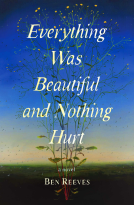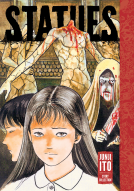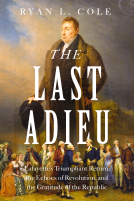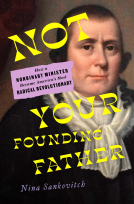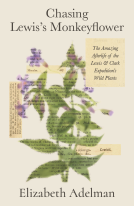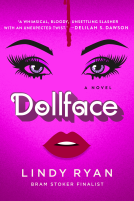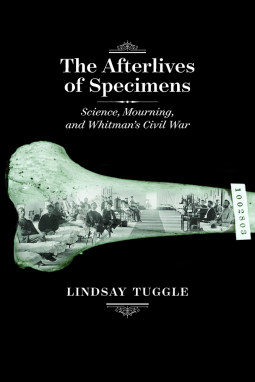
The Afterlives of Specimens
Science, Mourning, and Whitman's Civil War
by Lindsay Tuggle
This title was previously available on NetGalley and is now archived.
Send NetGalley books directly to your Kindle or Kindle app
1
To read on a Kindle or Kindle app, please add kindle@netgalley.com as an approved email address to receive files in your Amazon account. Click here for step-by-step instructions.
2
Also find your Kindle email address within your Amazon account, and enter it here.
Pub Date Nov 15 2017 | Archive Date Jan 15 2018
University of Iowa Press | Iowa Whitman Series
Talking about this book? Use #AfterlivesofSpecimens #NetGalley. More hashtag tips!
Description
Grounded in archival discoveries, Afterlives traces the origins of nineteenth-century America’s preservation compulsion, illuminating the influences of botanical, medical, spiritualist, and sentimental discourses on Whitman’s work. Tuggle unveils previously unrecognized connections between Whitman and the leading “medical men” of his era, such as the surgeon John H. Brinton, founding curator of the Army Medical Museum, and Silas Weir Mitchell, the neurologist who discovered phantom limb syndrome. Remains from several amputee soldiers whom Whitman nursed in the Washington hospitals became specimens in the Army Medical Museum.
Tuggle is the first scholar to analyze Whitman’s role in medically memorializing the human cadaver and its abandoned parts.
Advance Praise
“This is an exciting book. From the opening claim that Whitman’s word ‘specimen’ is etymologically grounded in voyeurism, Afterlives of Specimens is arresting in its insights. Well-researched and original, it makes a major contribution to Whitman studies while also contributing to Civil War history and to our understanding of the intersection of science and mourning.”—Kenneth Price, codirector, The Walt Whitman Archive
“This work will become quite important for Whitman scholars, but one of the reasons it is such an exciting volume is the contribution it makes to our overall understanding of attitudes toward and treatment of the body in the nineteenth century, particularly in the context of the Civil War. This work will appeal to a broad audience: certain anecdotes and pieces of information, while rather macabre (I challenge readers to forget the doctor who bound books in human skin), are so compelling that readers with a general interest in American history, the history of the Civil War, or in the history of medicine, will find it irresistible.”—Martin T. Buinicki, author, Walt Whitman’s Reconstruction
Available Editions
| EDITION | Paperback |
| ISBN | 9781609385392 |
| PRICE | $65.00 (USD) |
| PAGES | 276 |
Links
Average rating from 6 members
Featured Reviews
 Reviewer 153322
Reviewer 153322
As a young man, Whitman partook of the general gothic horror of body snatching and public dissection as a ghoulish provocation, but as he matured, he collected plant specimens (to which he attached erotic meaning in their exchange with other people), and then served as a nurse in the Civil War. Tuggle digs into Whitman's war letters and anecdotes, finding that this was a transformative experience, forcing him to minister to the essence of people, rather than their physical bodies, which were often in discarded parts around him, amputation being the Civil War answer to medical diagnosis. By the end of his life, he was enthusiastically leaving instructions that his own body serve as a specimen. This is an interesting study of a familiar literary body in light of rapid changes to science and science's public reputation, playing out in the life of someone seemingly dissociated with it until you scratch the surface.
 Gwen S, Librarian
Gwen S, Librarian
First things first, I totally did not notice the subtitle of this book when I requested it. I admit, it was cover and main title love at first sight and I went for it. If I'd read more, it's likely that I would have passed on it and missed out on a very interesting book.
During the Civil War, the Surgeon General sent out doctors to not only help the wounded soldiers but to collect specimens for the Army Medical Museum. Odd wounds, legs amputated and still filled with shrapnel, you name it, the few Doctors tagged for this duty were almost ruthless in getting the specimens they wanted in order to send it back to Washington for the museum.
At the same time, Walt Whitman was collecting a completely different type of specimens as he sat at the bedside of wounded soldiers, often more of a death watch and jotting down character sketches of each in words on small pieces of paper that he folded to fit easily in his pockets. I had never thought of specimens in this way and once I did, I was entranced with the idea. These men were dying far from home and family, alone, and often in horrible pain, yet each that Whitman came across did not take that journey alone thanks to him and his dedication to be there at their bedside. While there lucky in a way, that their names would be known when they died as opposed to dying forgotten and unmourned on the battlefield, their death, of course, made an impact on their loved ones in whatever small city and Whitman as well.
The Civil War brought massive change in all areas of life, especially medicine and the culture of death. The South was literally covered in blood and bodies, most unknown and unknowable, at a time when society had been obsessed with the idea of dying a "good death", one that was for a good reason, and that they faced with courage and ready to face the lord. Before the war, caskets with their bodies were often displayed in parlors and watched over by family members until they were buried with a proper headstone, marking their lives. These far-flung and often unknown deaths meant that the relatives could not do this ritual, know exactly where their father's and son's were buried or any actual details of whether they died a good death or not, which was important.
After the war, these losses left empty holes in everyone's hearts and minds. With no place to visit, no story to tell of their passing, just vanishing into the great maw of war. First, this led to the rise of embalming, which, hopefully, led to the fallen soldier being in some sort of condition that would allow him to be sent home in a coffin. Not all were successful and it was expensive, so was out of reach for the average Joe's family. President Lincoln was embalmed in order to travel all those miles home to Springfield, yet it was still not a perfect science and even he needed to be 'touched up' often.
This also led the government to try their best to find the dead and then to start national cemeteries when they could, however, their found versus lost percentages were not great. One thing to note, this was usually only done for the Union dead, so the former Confederate soldiers and their families were left to their own devices. Their dead, being disincluded and disrespected in such a way was part of why we are having to deal with objectionable statue and memorial fights now across the South, They created their own memorials and held the resentment for years, if not still, for being treated so.
Back to Whitman...His experiences changed him, both physically and mentally. He spent the rest of his life trying to frame what he saw and experienced by editing Leaves of Grass over and over again, adding poems, trying to include both the individual and the huge hole that the entire country was left with. Whereas before he wrote about one death giving life to nature through decomposition and sending up blades of grass, this was too much loss for him to contain in such simple imagery. His time in the hospitals also brought him TB and a sort of trauma that he never really got over and took years off of his life.
This book ended up fascinating me once I got past the thought that it was all about Whitman. It really wasn't, it was about the effects of the War on the nation, the way it changed our cultures of death, and was a deep look at how it changed one very talented man even though he never put on a uniform or really had an opinion about it. He came to help the suffering and couldn't tear himself away, even when he should have due to both physical and mental health. It changed that man as much as it changed everyone and everything else. The nation was never the same and sometimes I know we are still struggling with what it all meant to both North and South and continue to fight the same battles behind the scenes and more subtly.
Thanks to Netgalley and the University of Iowa Press for the review copy.
 Reviewer 446033
Reviewer 446033
#AfterlivesofSpecimens #NetGalley
The Afterlives of Specimens gives a view on the evolution of the balance between science and sentiment, Lindsay provides a historical look about the meaning and the change of perception through the decades concerning human body dissection and posthumous disposal and more other procedure related to dead bodies. The book is well documented and illustrated with interesting diagrams and historical pictures.


